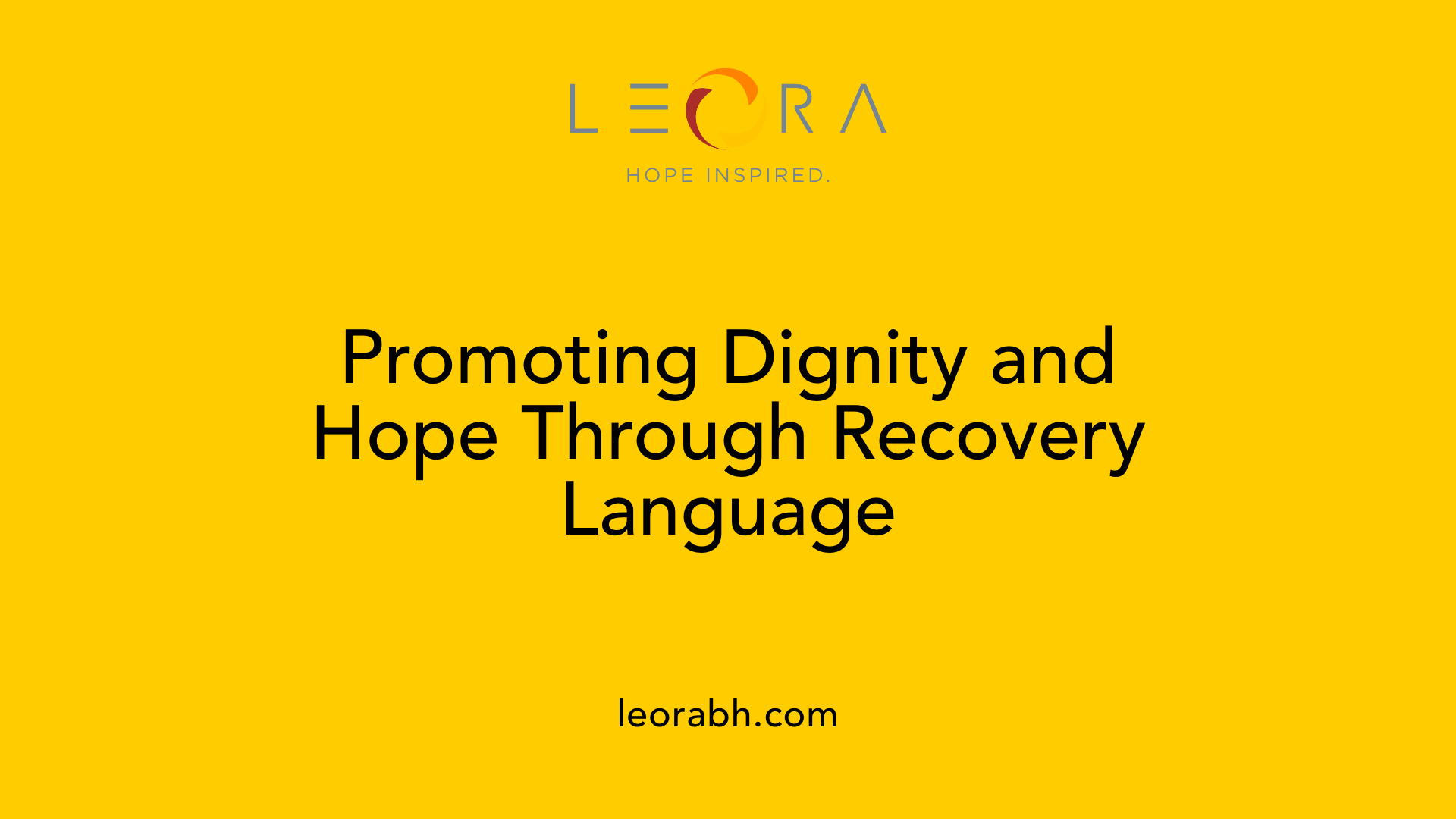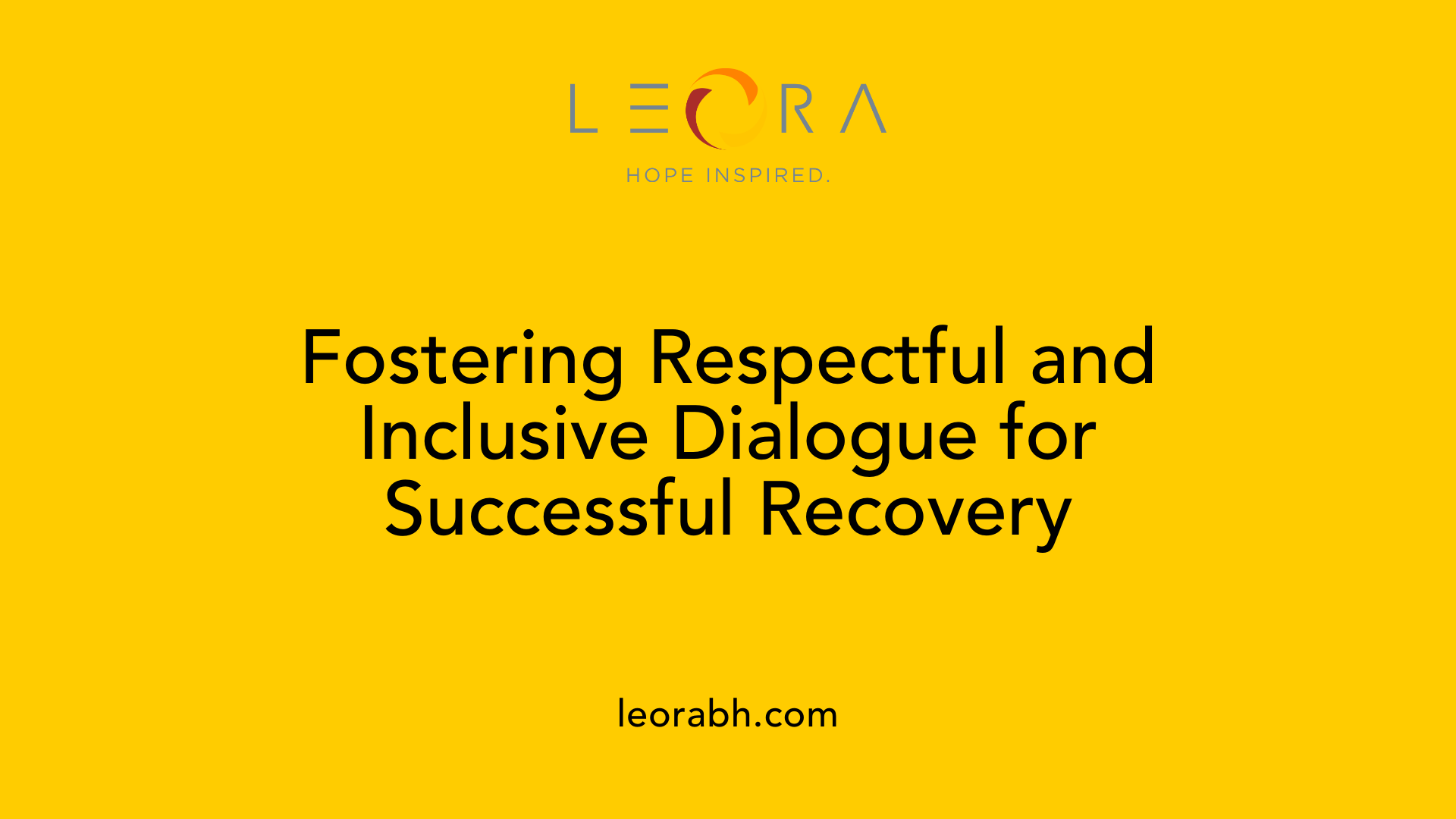The Importance of Language in Recovery Conversations
Building Bridges: How Thoughtful Language Enhances Recovery Support
Understanding the Crucial Role of Language in Addiction Recovery
Language serves as a powerful tool in shaping perceptions, fostering understanding, and supporting individuals on their journey to recovery. The words we choose can either reinforce stigma or promote dignity, hope, and resilience. This article explores the profound impact of language in recovery conversations, emphasizing best practices to create more inclusive, respectful, and effective communication environments.
The Significance of Communication in Human Interaction and Society
What is the importance of language in the process of communication?
Language is the foundation of effective communication, especially in sensitive contexts like discussing substance use disorder (SUD). It enables us to share ideas, feelings, and information clearly, which fosters understanding and empathy. When we use respectful and precise language, it helps break down misconceptions and reduces stigma.
In society, the words we choose influence perceptions and attitudes. For example, terms such as 'person with a substance use disorder' instead of 'addict' focus on the individual rather than their illness, promoting dignity and compassion.
Using non-stigmatizing language in healthcare, education, and public discussions can change societal views and increase support for recovery programs. It encourages those struggling with SUD to seek help without fear of judgment.
Mastering respectful language also enhances cognitive skills by promoting clearer communication and critical thinking. It allows professionals, families, and communities to work together more effectively, creating a supportive environment conducive to recovery. Overall, language is a vital tool that shapes understanding, influences social change, and supports individual growth in addressing complex issues like addiction.
Why Recovery-Oriented Language Matters
 Using language that focuses on the person rather than their condition is a crucial aspect of promoting recovery and reducing stigma associated with substance use disorder (SUD). Person-first language, such as 'person with a substance use disorder,' helps to shift the perception from labeling individuals based on their struggles to recognizing their inherent dignity and strengths. This approach fosters a more compassionate environment, emphasizing that the disorder does not define the individual.
Using language that focuses on the person rather than their condition is a crucial aspect of promoting recovery and reducing stigma associated with substance use disorder (SUD). Person-first language, such as 'person with a substance use disorder,' helps to shift the perception from labeling individuals based on their struggles to recognizing their inherent dignity and strengths. This approach fosters a more compassionate environment, emphasizing that the disorder does not define the individual.
The words we choose influence how individuals perceive themselves, which can significantly impact their motivation and confidence to pursue recovery. Positive, respectful language promotes self-esteem and encourages resilience. When individuals hear supportive language that recognizes their efforts and potential, they are more likely to feel empowered to seek help and stay committed to their recovery journey.
Moreover, recovery-focused language inspires hope and a sense of possibility. Descriptions that highlight growth, progress, and the ongoing nature of recovery help combat feelings of shame and shame's paralyzing effects. Such language reassures individuals that recovery is attainable and that they are not alone in their experiences.
Research indicates that language can shape societal attitudes and influence policies related to addiction services. When communities adopt recovery-oriented terminology, it fosters a culture of understanding and support, which is essential for effective treatment and social reintegration. Overall, the deliberate use of respectful, person-centered language acts as a vital tool in motivating individuals, improving their self-image, and creating a more inclusive and supportive societal environment.
The Power of Words in Shaping Recovery Outcomes

What is the power of recovery language and how does it support individuals in recovery?
Recovery language plays a crucial role in shaping how individuals view themselves with regard to their substance use disorder (SUD). It emphasizes respectful, empowering, and hopeful communication, which supports individuals throughout their recovery journey. When health professionals, peers, and the community use language that recognizes the person rather than the illness, it fosters a sense of dignity and worth.
The impact of recovery language goes beyond words—it influences attitudes, behaviors, and perceptions. For example, replacing stigmatizing terms like 'addict' or 'user' with 'person with a substance use disorder' shifts focus from blame to support and understanding.
This language promotes an environment where individuals feel more respected, understood, and motivated. Proper training in recovery language, like programs that teach its nuances, equips providers to communicate effectively. These skills help build trust, enhance engagement in treatment, and bolster self-efficacy, which are all critical for successful recovery.
Peer support specialists often utilize recovery language to empower clients, encouraging their resilience and offering hope. Overall, adopting thoughtful, person-first language supports meaningful involvement in recovery efforts and fosters positive outcomes.
Best Practices for Inclusive and Respectful Recovery Conversations

What are the best practices for using appropriate and non-stigmatizing language in recovery discussions?
Using respectful and inclusive language is essential for fostering a supportive environment for individuals with substance use disorder (SUD). One of the most effective approaches is adopting person-first terminology, such as saying 'person with a substance use disorder' instead of labels like 'addict' or 'junkie.' This shifts the focus from the condition to the individual, promoting dignity and understanding.
Avoiding pejorative terms is crucial. Words like 'user,' 'habit,' or 'alcoholic' carry negative connotations and can reinforce stigma. Instead, use neutral, medical terms like 'person in recovery,' 'testing positive,' or 'receiving medication-assisted treatment.' These terms help convey facts objectively and compassionately.
Healthcare providers and community leaders should stay informed through trusted resources like Addictionary®, which offers guidance on appropriate language. Incorporating culturally competent language that respects individual preferences and backgrounds is vital to ensure inclusivity and reduce misunderstandings.
Implementing policies that emphasize respectful communication in settings like healthcare, education, and outreach programs creates a foundation for healthier dialogue. Educational initiatives can train professionals to be mindful of their word choices, fostering environments of trust and empathy.
Creating awareness and emphasizing positive, strength-based language encourages individuals to seek help without shame. When language emphasizes recovery as an ongoing, manageable process, it motivates participation and personal growth.
In summary, best practices include using person-first language, avoiding negative terms, staying informed through reliable resources, respecting individual preferences, and promoting policies and training that support respectful communication. These steps help build a culture of respect, reduce stigma, and support effective recovery pathways.
Fostering a Culture of Compassion and Understanding
Language has the profound ability to shape perceptions, influence attitudes, and affect outcomes in addiction recovery. By consciously choosing respectful, person-centered, and empowering language, professionals and communities can dismantle stigma, bolster self-esteem, and motivate individuals to pursue and sustain recovery. Cultivating a culture of compassion begins with our words—supporting recovery through thoughtful communication is a collective responsibility that can lead to more inclusive, hopeful, and effective support systems for all those affected by substance use challenges.
References
- Importance of Using Recovery Language
- Words Matter: Preferred Language for Talking About Addiction
- The Importance of Language in Recovery
- How Language Affects Addiction and Recovery - The Courage Center
- The Importance of Using Positive Language in Addiction Recovery
- The Power of Person First Language in Addiction Treatment
- Inclusive Language and Communication: Fostering a Safe Space for ...
- Words Matter - Terms to Use and Avoid When Talking About Addiction
- The Power of Recovery-Friendly Language: Finding the right things ...
- Language Matters in the Recovery Movement
Find Your Inner Light
Related Articles
Schedule an Assessment
Leora Behavioral Health provides comprehensive treatment services, including ambulatory detox, mental health IOP, and SUD IOP, to support your journey toward lasting recovery.
Our caring team will guide you through the admissions process and create a personalized treatment plan tailored to your unique needs. We welcome walk-ins. If you or a loved one is struggling, reach out today. We’re here to help.


.svg)




.svg)
.svg)
.svg)
.svg)
